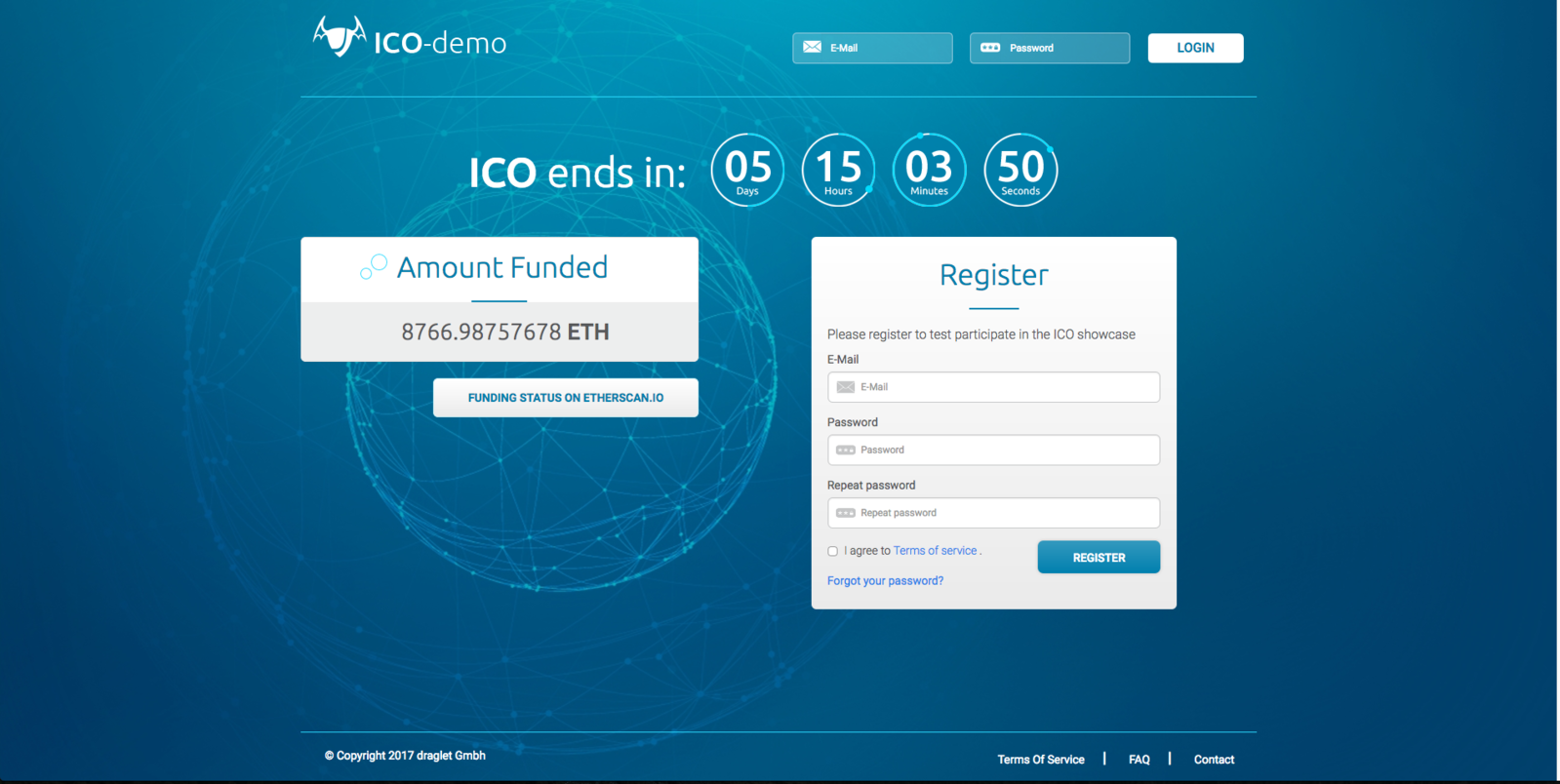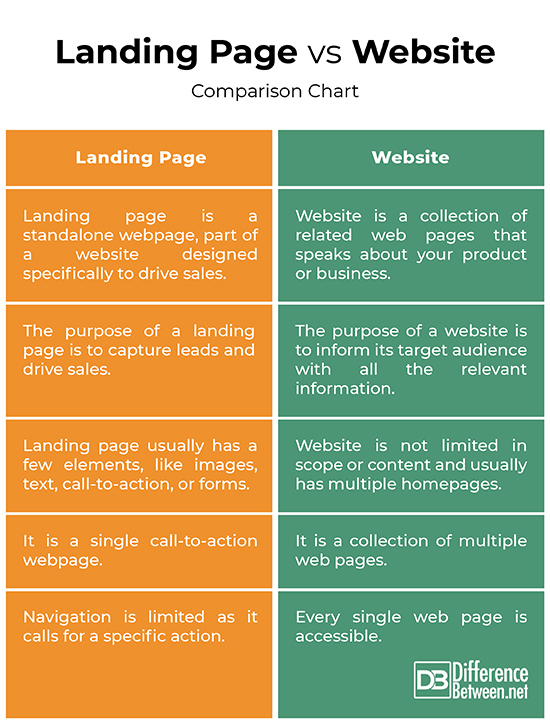Difference Between Landing Page and Website
Ever wonder why so many businesses fail so miserably when it comes to marketing? Why businesses fail and a very few succeed? It’s true that marketing is the heart of any business; in fact, marketing is the key to success. Everybody seems to know about marketing, yet so many people fail to do it properly, wasting their valuable money on the same things and strategy over and over. Digital marketing is the buzzword these days. Well, it’s not one of those fancy, new buzzwords you come across every day; in fact, it’s the real deal. And landing pages are a fundamental piece of any digital marketing strategy. However, a landing page should not be confused with a website.
Landing page, as the name suggests, is just any webpage on which any Internet visitor lands, but in the marketing context, it’s a standalone page, very different from your standard homepage or just any webpage, designed specifically for the sole purpose of marketing. A landing page has a prominent call-to-action, meaning it urges the visitor to take some important action to convert the lead into a customer. Landing pages call for actions such as online purchases, downloads, form-fills, or anything to receive traffic. Landing pages vary from businesses to businesses and no two landing pages are ever the same, but they often serve the same purpose. However, landing pages are never to be confused with websites.
What is a Landing Page?
A landing page is a standalone webpage, designed specifically to convert leads into customers by promoting a definitive call-to-action as part of an online marketing strategy. A landing page is exactly what it sounds like – a webpage, but not your standard homepage, a visitor lands on through various paid or non-paid sources. In digital marketing, they are often called as a lead capture page because they are so designed to capture possible digital leads and convert them into customers. A customer might arrive at the landing page by clicking an online ad or an email link, or by following a search engine result or action as part any digital marketing campaign. A landing page is part of a website which focuses on lead conversion.
What is a Website?
There are many different ways to establish a legit online presence these days, such as chat with friends on Facebook, posts pictures on Instagram, or upload videos on YouTube, or write blogs. But if you want your business to thrive in today’s competitive world, you must have a website. Having a strong web presence is a crucial part of your online marketing strategy and website is the hub of your online presence. The things you can accomplish with the help of a website, you can’t possibly do with emails, social networking, or any other web-based service. So what is a website? A website is nothing but a collection of interconnected web pages and multimedia content that are part of a single domain and which can be accessed through the Internet.
Difference between Landing Page and Website
Meaning
A landing page is a part of a website but different from a standard homepage or any webpage, designed specifically to convert leads into potential customers. A landing page is a standalone webpage that calls for an action in order to capture leads and drive sales. A website, on the other hand, is a collection of related web pages that speaks about your product or business. It is a hub of interrelated web resources, such as web pages and multimedia content that can be accessed through its web address using a browser.
Audience/Purpose
Landing pages are the ideal place to convert your target audience into customers. Landing page is an extension of an ad designed to help you focus on specific areas of interest. They are specifically intended for targeted marketing. The idea of a landing page is to identify and engage your target audience based on their types, interests and preferences. The purpose of a website is to convey specific information about your product or business or simply to nurture leads through a collection of web pages, with each page speaking of something unique about the business.
Content
Unlike a website which has multiple home pages or web pages, a landing page is a single, standalone webpage designed to serve a specific purpose and target towards specific audience. A website, on the contrary, is not limited in scope or content because the primary objective of a website is to inform, not necessarily to sell. The content of a landing is appealing, target specific, and marketing friendly. Unlike a website, the content on a landing page is short and concise, specifically created to drive sales. A landing page usually has a few elements, like images, text, call-to-action, or forms.
Landing Page vs. Website: Comparison Chart
Summary
Landing pages are exactly what they sound like – a target-specific webpage, but not your standard homepage, on which internet visitors arrive through either paid or non-paid sources. However, landing pages are not to be confused with websites, which on the other hand, are a collection of related web pages that belong to a single domain. Unlike a landing page, websites are not target specific; in fact, they are designed to inform, but not to drive sales. The main purpose of a landing page is to nurture leads and drive sales, whereas websites serve many different purposes such as tell your story, advertise products and services, provide a storefront, provide education, and more.
- Difference Between Caucus and Primary - June 18, 2024
- Difference Between PPO and POS - May 30, 2024
- Difference Between RFID and NFC - May 28, 2024
Search DifferenceBetween.net :
Leave a Response
References :
[0]Harwood, Martin and Michael Harwood. Landing Page Optimization For Dummies. Hoboken, New Jersey: John Wiley & Sons, 2009. Print
[1]Chaffey, Dave and PR Smith. Digital Marketing Excellence: Planning, Optimizing and Integrating Online Marketing. Abingdon, United Kingdom: Taylor & Francis, 2017. Print
[2]Ash, Tim, et al. Landing Page Optimization: The Definitive Guide to Testing and Tuning for Conversions. Hoboken, New Jersey: John Wiley & Sons, 2012. Print
[3]Image credit: https://pixabay.com/illustrations/website-blogging-design-3227784/
[4]Image credit: https://commons.wikimedia.org/wiki/File:ICO_Solution_-_Demo_Landing_Page.png



